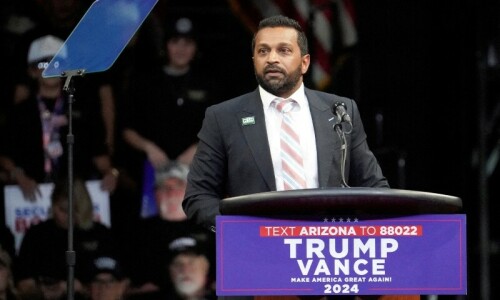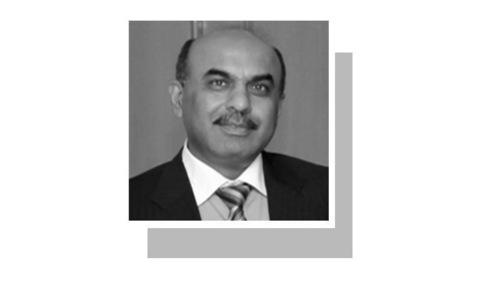LOS ANGELES: If the sweeping surveillance law signed by President Bush on Thursday giving the US government nearly unchecked authority to eavesdrop on the phone calls and emails of innocent Americans is allowed to stand, we will have eroded one of the most important bulwarks to a free press and an open society.
The new FISA Amendments Act nearly eviscerates oversight of government surveillance. It allows the Foreign Intelligence Surveillance Court to review only general procedures for spying rather than individual warrants. The court will not be told specifics about who will be wiretapped, which means the law provides woefully inadequate safeguards to protect innocent people whose communications are caught up in the government’s dragnet surveillance programme.
The law, passed under the guise of national security, ostensibly targets people outside the country. There is no question, however, that it will ensnare many communications between Americans and those overseas. Those communications can be stored indefinitely and disseminated, not just to the US government but to other governments.
This law will cripple the work of those of us who as reporters communicate regularly with people overseas, especially those in the Middle East. It will intimidate dissidents, human-rights activists and courageous officials who seek to expose the lies of our government or governments allied with ours. It will hang like the sword of Damocles over all who dare to defy the official versions of events. It leaves open the possibility of retribution and invites the potential for abuse by those whose concern is not with national security but with the consolidation of their own power.
I have joined an ACLU lawsuit challenging the new law along with other journalists, human-rights organisations and defence attorneys who also rely on confidentiality to do their work. I have joined not only because this law takes aim at my work but because I believe it signals a serious erosion of safeguards that make possible our democratic state. Laws and their just application are the only protection we have as citizens. Once the law is changed to permit the impermissible, we have no recourse with which to fight back.
I spent nearly 20 years as a foreign correspondent for The New York Times, as well as other news organisations. I covered the conflict in the Middle East for seven years. I have friends and colleagues in Jerusalem, Gaza, Cairo, Damascus, Tehran, Baghdad and Beirut. I could easily be one of those innocent Americans who are spied on under the government’s new surveillance authority.
The reach of such surveillance already has hampered my work. I was once told about a showdown between a US warship and the Iranian navy that had the potential to escalate into a military conflict. I contacted someone who was on the ship at the time of the alleged incident and who reportedly had photos. His first question was whether my phone and emails were being monitored.
What could I say? How could I know? I offered to travel to see him but, frightened of retribution, he refused. I do not know if the man’s story is true. I only know that the fear of surveillance made it impossible for me to determine its veracity. Under this law, all those who hold information that could embarrass and expose the lies of those in power will have similar fears. Confidentiality, and the understanding that as a reporter I will honor this confidentiality, permits a free press to function. Take it away and a free press withers and dies.
I know the cost of terrorism and the consequences of war. I have investigated Al Qaeda’s operation in Europe and have covered numerous conflicts. The monitoring of suspected terrorists, with proper oversight, is a crucial part of our national security. But this law is not about keeping us safe, which can and should be done in a constitutional manner and with judicial oversight. It is about using terrorism as a pretext to permit wholesale spying and to silence voices that will allow us to maintain an open society.—Dawn/ The LAT-WP News Service © The Los Angeles Times















































Dear visitor, the comments section is undergoing an overhaul and will return soon.